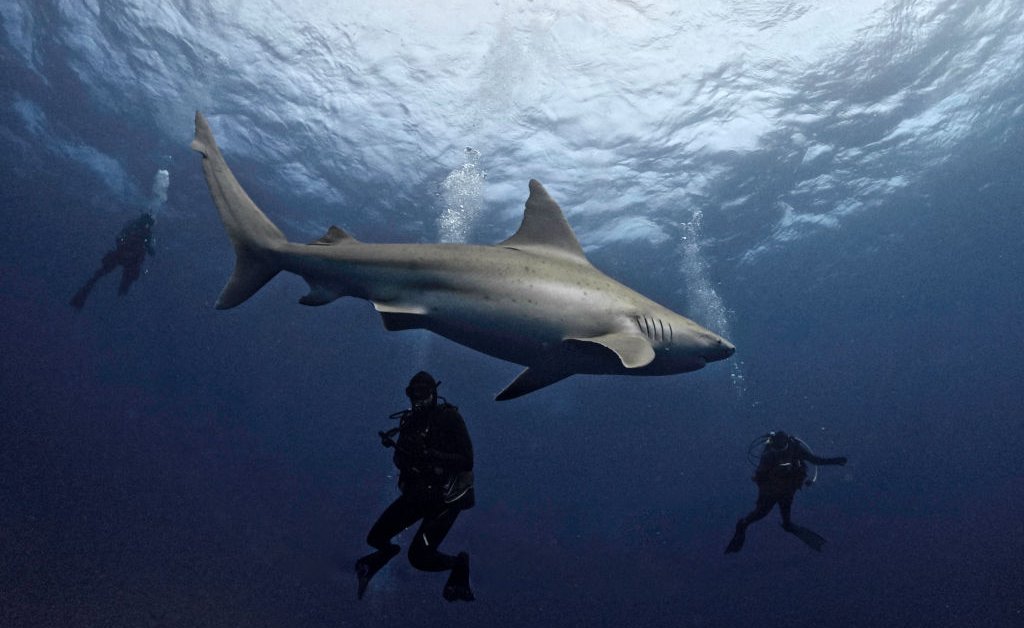Did Jaws Hurt Shark Conservation? Assessing The Film's Long-Term Effects

Welcome to your ultimate source for breaking news, trending updates, and in-depth stories from around the world. Whether it's politics, technology, entertainment, sports, or lifestyle, we bring you real-time updates that keep you informed and ahead of the curve.
Our team works tirelessly to ensure you never miss a moment. From the latest developments in global events to the most talked-about topics on social media, our news platform is designed to deliver accurate and timely information, all in one place.
Stay in the know and join thousands of readers who trust us for reliable, up-to-date content. Explore our expertly curated articles and dive deeper into the stories that matter to you. Visit Best Website now and be part of the conversation. Don't miss out on the headlines that shape our world!
Table of Contents
Did Jaws Hurt Shark Conservation? Assessing the Film's Long-Term Effects
Steven Spielberg's 1975 blockbuster, Jaws, terrified audiences worldwide and cemented the great white shark's place in popular culture as a fearsome predator. But did this cinematic masterpiece, while a triumph of filmmaking, inadvertently hinder shark conservation efforts? The legacy of Jaws is complex, and assessing its long-term impact on shark populations requires a nuanced look at both its immediate effects and its lasting influence on public perception.
The Immediate Aftermath: A Wave of Fear and Overfishing
The film's release sparked a global wave of "shark hysteria." Beaches were deserted, shark hunts proliferated, and the majestic great white, already facing threats from overfishing and habitat destruction, became the target of widespread fear and culling. Many coastal communities, fueled by a heightened sense of danger, implemented aggressive shark control programs, often resulting in indiscriminate killings of sharks, regardless of species or threat level. This immediate post-Jaws period undoubtedly contributed to the decline of several shark populations.
The Long-Term Impact: A Double-Edged Sword
While the initial reaction to Jaws was undeniably negative for shark conservation, the film's enduring popularity has also, paradoxically, fostered a growing awareness and appreciation for these misunderstood creatures. The film's success brought sharks into the global spotlight, prompting increased scientific research and conservation efforts.
Positive Impacts:
- Increased Research Funding: The heightened public awareness generated by Jaws indirectly led to increased funding for shark research, resulting in a better understanding of their biology, behavior, and ecological roles. This knowledge has been crucial in developing more effective conservation strategies.
- Rise of Shark Awareness Organizations: The need to counter the negative perceptions fueled by Jaws led to the creation and growth of numerous shark conservation organizations dedicated to educating the public and advocating for shark protection. Groups like the Shark Trust and Oceana play a vital role in promoting responsible shark tourism and combating illegal fishing.
- Shifting Public Perception: While initial reactions were largely fearful, subsequent documentaries and educational initiatives have helped to shift public perception of sharks from mindless killing machines to crucial components of healthy marine ecosystems.
Negative Impacts (Lingering Effects):
- Continued Fear and Misunderstanding: Despite growing awareness, the image of the shark as a man-eating monster persists in popular culture, hindering conservation efforts. This lingering fear contributes to the ongoing support for destructive shark control practices in some areas.
- Finning and Overfishing: The demand for shark fin soup continues to drive unsustainable fishing practices, placing numerous shark species at risk of extinction. This is arguably a more significant threat to shark populations than the immediate post-Jaws culling.
- Lack of Enforcement: While international laws exist to protect many shark species, enforcement remains a significant challenge. Illegal fishing continues to decimate populations, negating the positive impacts of increased awareness.
Conclusion: A Complex Legacy
The legacy of Jaws on shark conservation is a complex and multifaceted issue. While the film initially fueled a period of intense fear and overfishing, its long-term impact has been more nuanced. The increased awareness and research it generated have been crucial in advancing shark conservation, but the ongoing challenges of illegal fishing, habitat destruction, and persistent negative perceptions highlight the need for continued efforts to protect these vital marine animals. The future of shark conservation depends not only on scientific advancements but also on changing public attitudes and strengthening global enforcement of existing regulations. We must learn from the past and ensure that future generations appreciate the crucial role sharks play in maintaining the health of our oceans.
Call to Action: Learn more about shark conservation and support organizations working to protect these magnificent creatures. You can find more information and ways to get involved at [link to relevant conservation organization].

Thank you for visiting our website, your trusted source for the latest updates and in-depth coverage on Did Jaws Hurt Shark Conservation? Assessing The Film's Long-Term Effects. We're committed to keeping you informed with timely and accurate information to meet your curiosity and needs.
If you have any questions, suggestions, or feedback, we'd love to hear from you. Your insights are valuable to us and help us improve to serve you better. Feel free to reach out through our contact page.
Don't forget to bookmark our website and check back regularly for the latest headlines and trending topics. See you next time, and thank you for being part of our growing community!
Featured Posts
-
 Under The Cover Exploring The Life And Career Of Michael C Hall
Jun 18, 2025
Under The Cover Exploring The Life And Career Of Michael C Hall
Jun 18, 2025 -
 Tennis Upset Moutets Dramatic Victory Over Fritz At Queens Club
Jun 18, 2025
Tennis Upset Moutets Dramatic Victory Over Fritz At Queens Club
Jun 18, 2025 -
 Rachel Brosnahan Preps Amanda Seyfried For A Superman Summer Blockbuster
Jun 18, 2025
Rachel Brosnahan Preps Amanda Seyfried For A Superman Summer Blockbuster
Jun 18, 2025 -
 Investigation Underway Hazmat Incident Impacts Area Around Camp Randall
Jun 18, 2025
Investigation Underway Hazmat Incident Impacts Area Around Camp Randall
Jun 18, 2025 -
 El Ascenso De Mastantuono Del Semillero A La Primera De River
Jun 18, 2025
El Ascenso De Mastantuono Del Semillero A La Primera De River
Jun 18, 2025
